Russia is waging small-scale assaults across the entire front, but the situation on the battlefield is nowhere near bad enough for Ukraine to be forced into an unfavorable peace deal, military analysts and soldiers told the Kyiv Independent.
Since Ukraine announced the start of the Russian spring offensive in early April, Moscow has made "incremental gains" in multiple sectors of the front at a high cost, but achieving a breakthrough seems unlikely.
Russia's bogged-down progress on the battlefield comes as the U.S. tries to force Ukraine into a rushed peace to end the war at all costs, with Washington potentially recognizing Moscow's illegal annexation of Crimea among the hard-hitting concessions.
U.S. President Donald Trump claimed that his country is not forcing Ukraine to legitimize the Russian occupation of Crimea and declined to say whether he would want Kyiv to formally recognize it.
President Volodymyr Zelensky ruled out acknowledging Ukrainian territory as Russian, with Trump criticizing his position as "harmful to the peace negotiations with Russia."
In an interview with the Time Magazine, Trump said "Crimea will stay with Russia. And Zelensky understands that, and everybody understands that it's been with them for a long time."
Trump also said that Russia's major concession is that Moscow won't take Ukraine, the "whole country," as he put it.
Meanwhile, the Ukrainian military — though outmanned and outgunned — had managed to stabilize the front. According to experts who spoke with the Kyiv Independent, Ukraine can keep fighting contrary to Trump's argument.
"Ukraine's position is nowhere near bad enough that they would need to make such concessions, especially when Russia isn't making any actual concessions," said Jakub Janovsky, a Prague-based military analyst at the Oryx open-source project tracking Ukrainian and Russian equipment losses.
‘End policy of appeasement’ — European foreign affairs chairs rebuke Trump’s Russia stance
“Negotiating with the war criminal Putin is evidently futile,” a statement signed by officials from eight countries said.

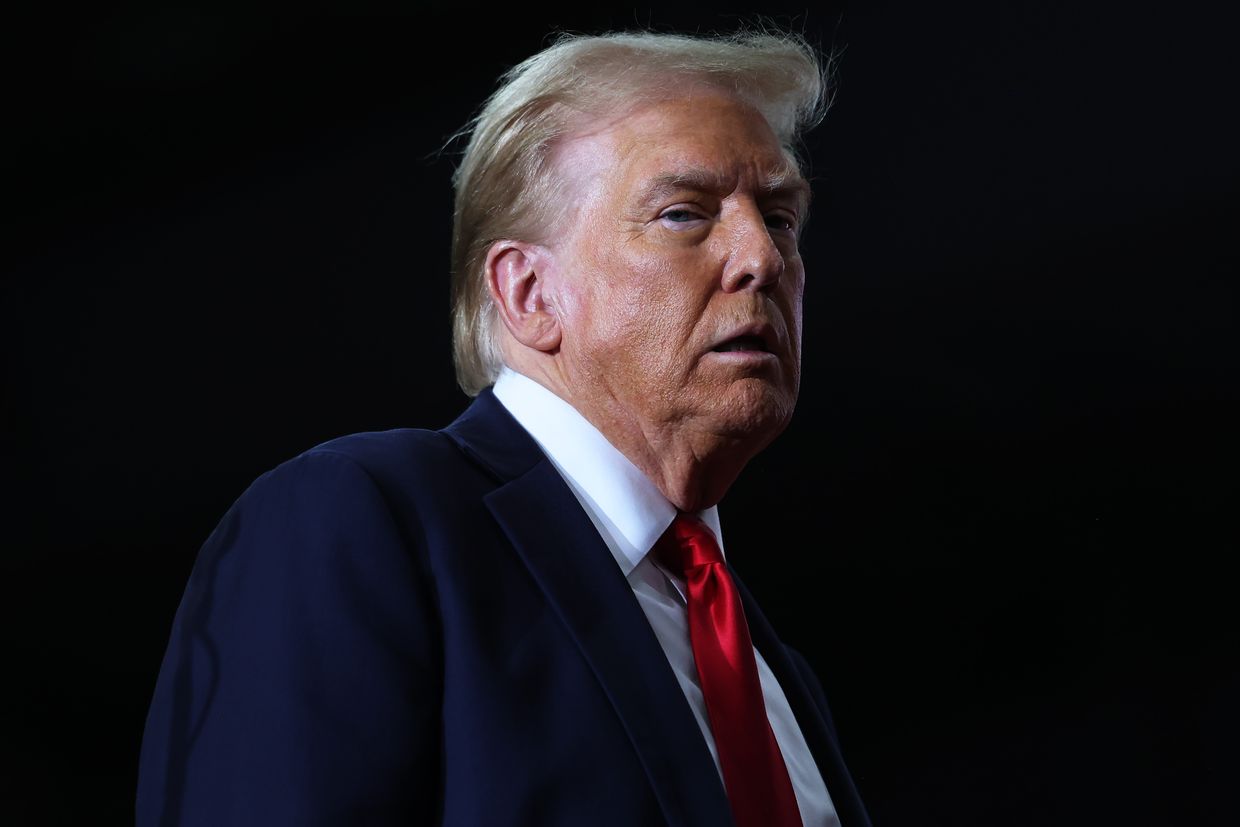
Stabilizing front
While Russia wages costly assaults in Donetsk Oblast and across the southern front, its troops appear to be struggling to keep advancing, and Ukraine has gotten better at countering these attacks, including with the use of cheap first-person-view (FPV) drones and mines.
"Creeping one kilometer after another in a country as large as Ukraine isn't exactly a viable strategy," Janovsky told the Kyiv Independent.
Based on the open-source footage of Russian assaults thus far in the spring offensive, Janovsky assessed that the assaults that rely on mechanized and motorized units and "loads of infantry" are not going well.
The Russian assaults are, nevertheless, endless on the ground, varying in intensity from day to day.
Oleksandr Spytsin, commander of a drone unit in the National Guard's Omega special operations division, deployed near Pokrovsk, said that Russian troops have been creeping "non-stop." His unit's task is to locate and prevent them from reaching the Ukrainian infantry positions.
"We often observe this pattern: When they take a serious beating, the next day their activity drops, they quiet down a bit," Spytsin told the Kyiv Independent at a drone position about two kilometers from the "zero" line.
"Then maybe they don't operate for a day, or they focus on another direction, and then they're back here again, acting like nothing happened."
Janovsky predicted that Russia's potential gains in the future would depend on how many resources Moscow would be willing to allocate, especially given how the usable equipment from the mass Soviet-inherited storage is "shrinking significantly."
Despite Russia's losses outnumbering its arms production capacity, Moscow would likely be able to keep replenishing its units this year, even if it means using less favorable options such as civilian vehicles instead of armored personnel carriers, according to Janovsky.
Former Defense Minister Andriy Zagorodnyuk, chairman of the Kyiv-based Center for Defense Strategies, argued that no matter the front-line situation, the de jure recognition of Crimea is "certainly unreasonable."
Zagorodnyuk said that the suggested peace formula circulating in the public domain has "nothing concrete about security guarantees," failing to prevent Russian President Vladimir Putin from breaching the ceasefire and restarting the war.
"You can only formally accept territorial losses once, you cannot get them back again. But Russia can breach ceasefires as many times as it likes," Zagorodnyuk told the Kyiv Independent, stressing that Ukraine needs firm security guarantees from the U.S. and Europe.
"Even if Ukraine has no 'cards,' it still cannot accept something which reinforces Putin for further actions."
Lawmaker Yehor Cherniev, deputy chairman at the National Security, Defense and Intelligence Committee and a chairman at Ukraine's permanent delegation to the NATO Parliamentary Assembly, said that "all our partners have long been informed about these red lines" despite the U.S. reportedly considering recognizing Russia's illegal annexation of Crimea.
"We have nowhere to retreat, we will not sign a surrender," Cherniev told the Kyiv Independent, saying that he hopes the European partners will remain on Kyiv's side.
John Hardie, deputy director of the Russia Program at the Washington-based Foundation for Defense of Democracies, agreed that the overall front-line situation is "not great, but not dire," and it's unlikely to collapse.
Even if the U.S. were to pull out its military aid and intelligence sharing with Ukraine again, Hardie believes that a front-line collapse is unlikely, although the effect in some areas — such as the air defense — may be felt quicker. Trump's team has threatened that the U.S. could ditch the peace talks efforts if there is no progress in the coming weeks.
While Russia's advances in its spring offensive may speed up with time despite its infantry currently being "very low quality," Ukraine's "really good ability" in its prepared defense and precision pose "a formidable challenge for the Russian attackers."
"I don't think Ukraine is in a position where it sort of has to accept whatever the U.S. says or Russia's demands in order to get a deal immediately," Hardie told the Kyiv Independent.
Full text of US peace proposal at odds with Ukrainian, EU positions, Reuters reports
The publication also released a counterproposal delivered by Ukrainian and European officials earlier this week. The documents expose disagreements on critical issues, including territorial concessions, sanctions relief, security guarantees, and the size of Ukraine’s armed forces.

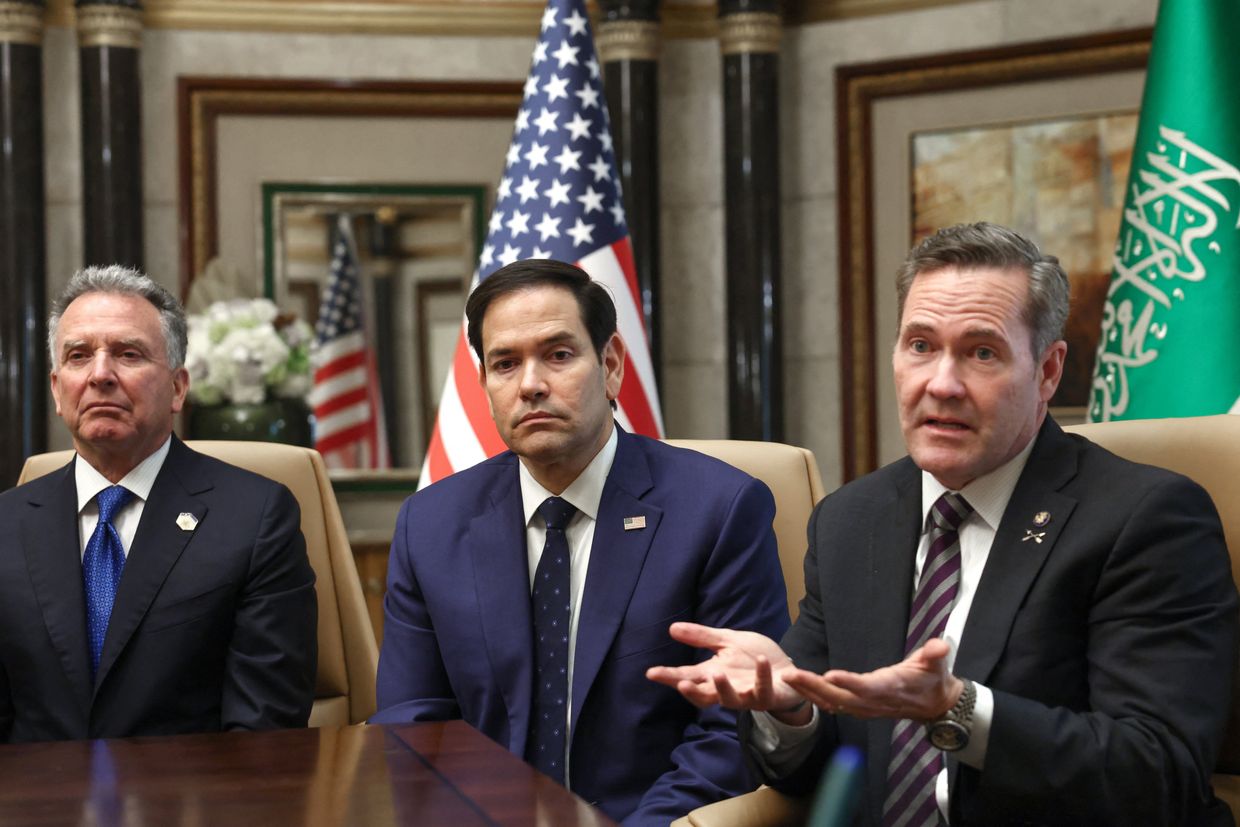
.png)
 German (DE)
German (DE)  English (US)
English (US)  Spanish (ES)
Spanish (ES)  French (FR)
French (FR)  Hindi (IN)
Hindi (IN)  Italian (IT)
Italian (IT)  Russian (RU)
Russian (RU)  7 hours ago
1
7 hours ago
1
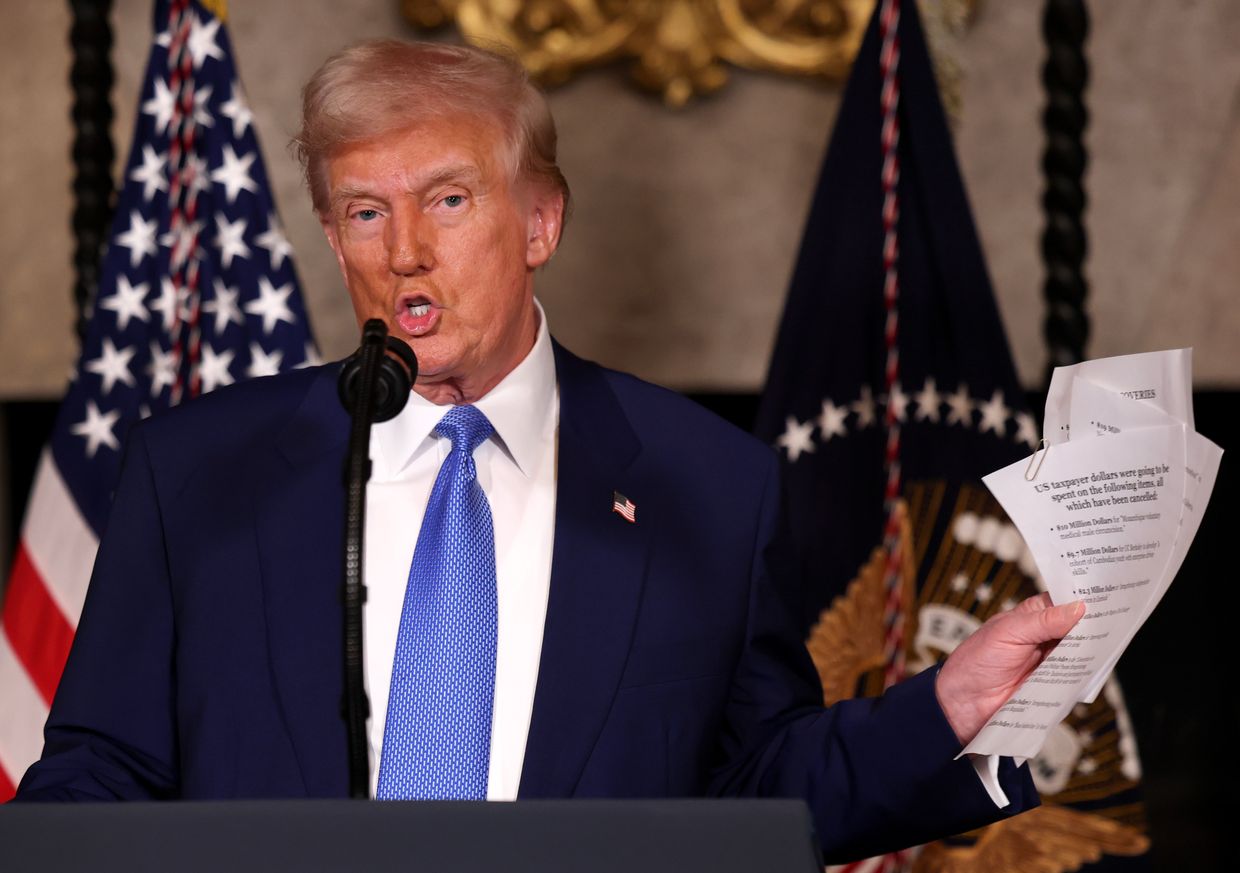
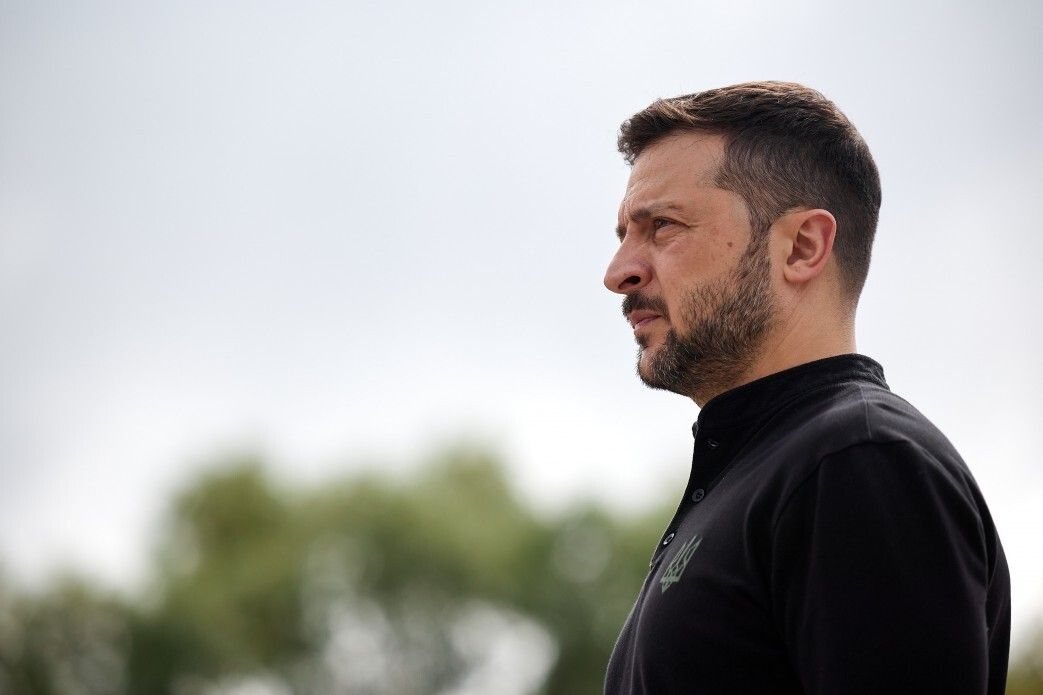
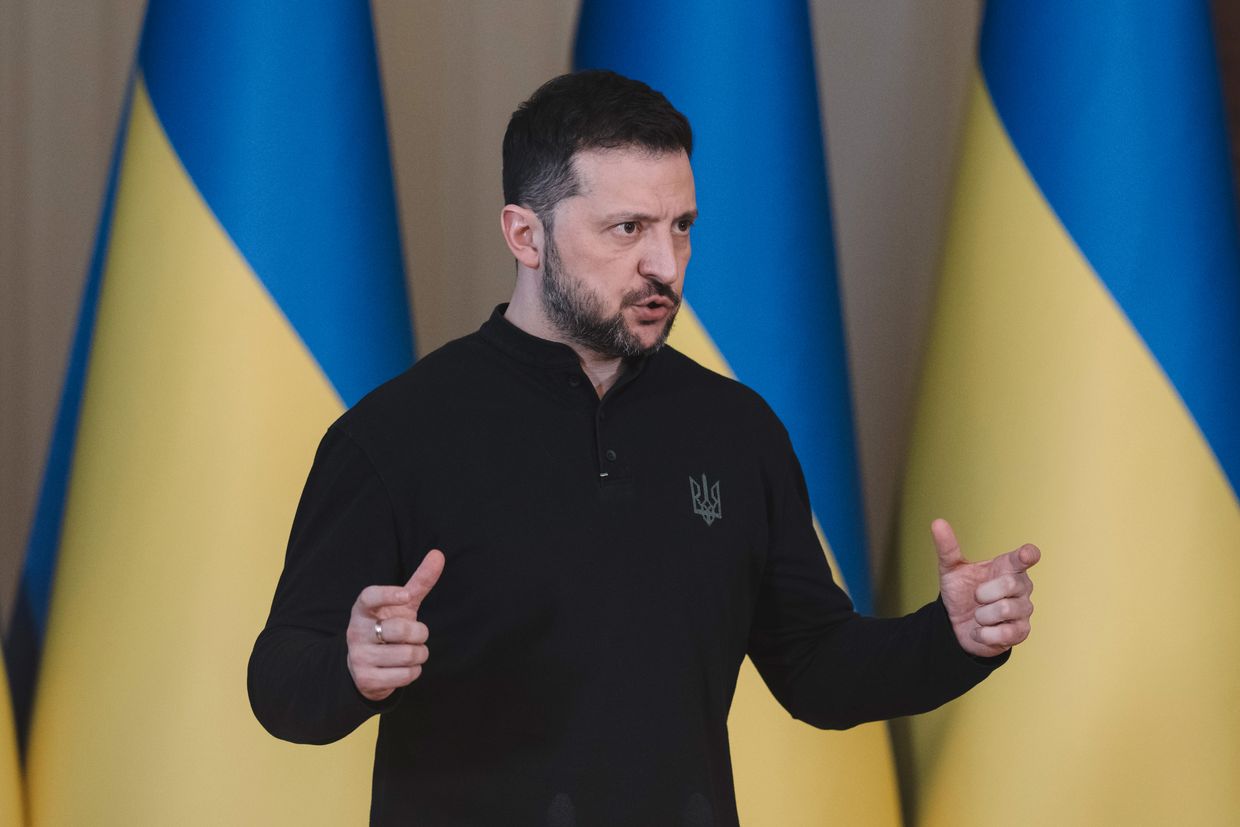
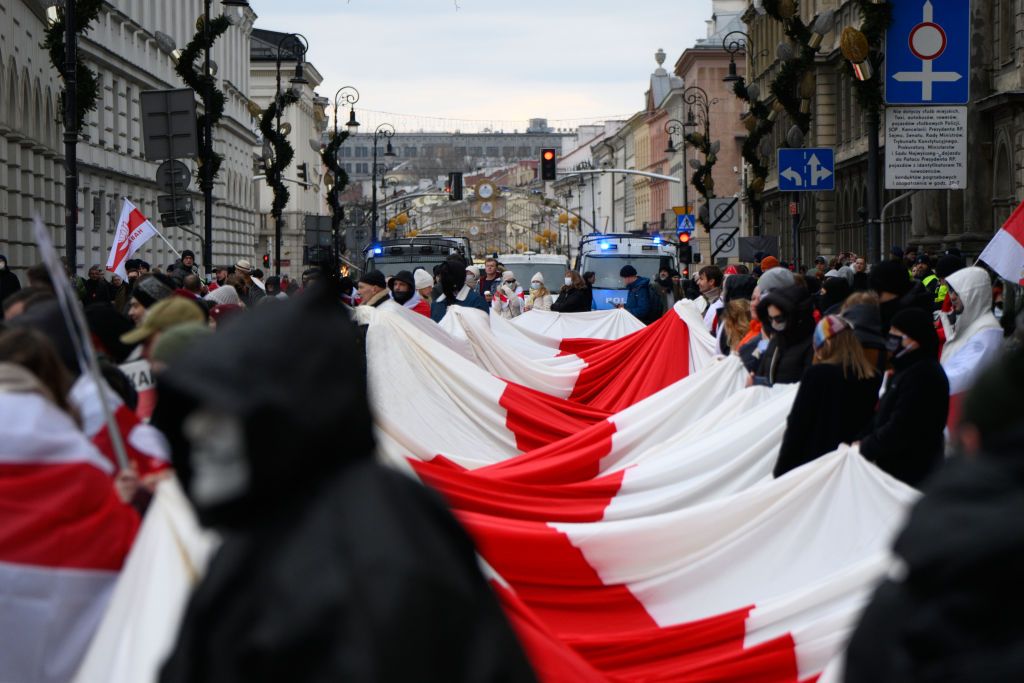





Comments